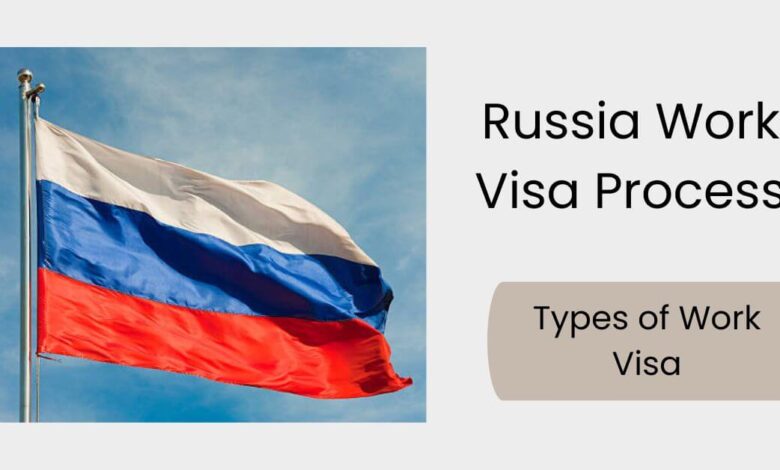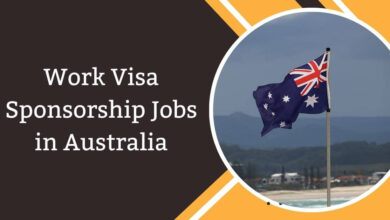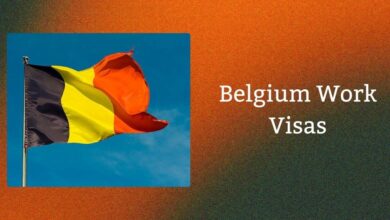Russia Work Visa Process 2026 – Types of Work Visa

The Russian Federation, the world’s largest country by land area, continues to attract foreign workers in 2026 due to strong demand in technology, healthcare, engineering, manufacturing, and construction. With a population of over 143 million, Russia faces ongoing labor shortages in key industries, creating opportunities for skilled international professionals.
For most foreign nationals including citizens of Pakistan, India, Bangladesh, Nigeria, and the Philippines, a Russian work visa is mandatory before employment. This guide explains who needs a visa, the types of Russian work visas, high-demand job sectors, requirements, and the exact steps to apply successfully.
About the Russian Federation
The Russian Federation is the largest country in the world by land area, with a population of approximately 143.4 million people. It has a strong demand for foreign workers, especially in technology, healthcare, engineering, and manufacturing.
Who Can Work in Russia Without a Visa?
Only citizens of the following regions can work in Russia without a visa:
- Belarus
- South Ossetia
Citizens of all other countries, including Pakistan, India, Bangladesh, Nigeria, and the Philippines, must obtain a Russian work visa before employment.
Most foreign workers in Russia come from the Commonwealth of Independent States (CIS) due to simplified procedures and cultural similarities.
Types of Russia Work Visas
Russia offers two main types of work visas, depending on employment duration.
1. Single-Entry Russia Work Visa
- Validity: Up to 90 days
- Issued based on a job offer and work permit
- Used as an initial entry visa
- Can later be converted into a multiple-entry visa without leaving Russia
This visa allows foreign nationals to enter Russia and complete employment formalities with the Russian Ministry of Internal Affairs (MVD).
2. Multiple-Entry Russia Work Visa
- Validity: Up to 1 year (renewable)
- Issued after converting the single-entry visa
- Allows multiple entries and exits
- Suitable for long-term employment
This visa is processed through the local Migration Police office and is required for stable employment in Russia.
Benefits of a Russian Work Visa
Legal Employment
You can legally work in Russia under a registered employer with full labor protections.
Competitive Salaries
Skilled professionals in IT, engineering, oil & gas, and healthcare earn above-average regional salaries, especially in Moscow and St. Petersburg.
High Demand for Skilled Workers
Russia faces labor shortages in:
- Software development
- Healthcare
- Industrial engineering
- Manufacturing and construction
Long-Term Stay Options
Renewable work visas allow foreign workers to stay in Russia for several years, depending on contract renewal.
Access to Major Cities
Most job opportunities are concentrated in:
- Moscow
- St. Petersburg
- Kazan
High-Demand Job Fields in Russia
Information Technology (IT)
- Software developers
- Data scientists
- Cybersecurity specialists
Healthcare
- Doctors
- Nurses
- Pharmacists
- Medical equipment specialists
Engineering
- Mechanical engineers
- Electrical engineers
- Oil & gas engineers
Construction
- Skilled laborers
- Site supervisors
- Civil engineers
Education
- STEM teachers
- Foreign language instructors (non-English also in demand)
Science & Research
- Scientific researchers
- Laboratory specialists
Manufacturing
- Aerospace technicians
- Automotive industry workers
Countries Whose Citizens Commonly Work in Russia
Russia mainly hires workers from the CIS countries, including
- Armenia
- Azerbaijan
- Belarus
- Kazakhstan
- Kyrgyzstan
- Moldova
- Tajikistan
- Uzbekistan
Citizens from non-CIS countries must follow the standard work visa process.
Russia Work Visa Requirements
1. Job Offer from a Russian Employer
You must receive an official job offer.
Your employer must:
- Obtain a work permit
- Get approval from the Russian Ministry of Internal Affairs (MVD)
2. Valid Passport
- Valid for at least 6 months after visa expiry
- Minimum two blank pages
3. Completed Visa Application Form
- Fill out the form online at visa.kdmid.ru
- Print and sign the application
4. Passport-Size Photograph
- Size: 3.5 × 4.5 cm
- White or light background
- Taken within the last 6 months
5. Official Invitation Letter
- Issued by the Russian Ministry of Internal Affairs
- Confirms you are invited for employment
6. Medical Certificate (for visas over 90 days)
Must confirm:
- No infectious diseases
- HIV-negative status
7. Visa Submission
Apply via:
- Russian Embassy or Consulate
- Authorized Visa Application Center
8. Visa Fee Payment
Fees vary by:
- Processing speed
- Applicant’s nationality
How to Apply for a Russian Work Visa (Step-by-Step)
- Secure a job offer from a Russian employer
- The employer applies for your work permit
- Employer issues an official invitation
- Submit visa application and documents
- Attend interview if required
- Wait for visa approval
After Arriving in Russia
Register Your Visa
You must register your stay with the local Migration Police within 7 days of arrival.
This is usually handled by:
- Your employer, or
- Your hotel/accommodation provider
Russian Embassies and Consulates
Visit the Russian Ministry of Foreign Affairs website to:
- Select your country
- Find embassy or consulate contact details
- Confirm local visa rules (which vary by country)
Always contact the embassy before applying.
Websites to Find Jobs in Russia
Recruitment Agencies
Conclusion
Obtaining a Russian work visa is straightforward if you secure a job offer first. Russia continues to welcome skilled foreign workers in key sectors such as IT, healthcare, engineering, and manufacturing. By applying through official channels and meeting the requirements, you can legally work and live in one of the world’s largest economies.
Frequently Asked Questions
Can a Pakistani get a Russian work visa?
Yes. Pakistani citizens must apply through a Russian embassy or consulate before traveling.
Can I go to Russia for work?
Yes, but you must obtain a Russian work visa unless you are a citizen of a visa-exempt CIS country.
How much does a work permit cost in Russia?
There are two main routes:
- Highly Qualified Specialist (HQS): Salary must exceed 167,000 rubles/month
- Standard work permit: Salary below HQS threshold, longer processin




